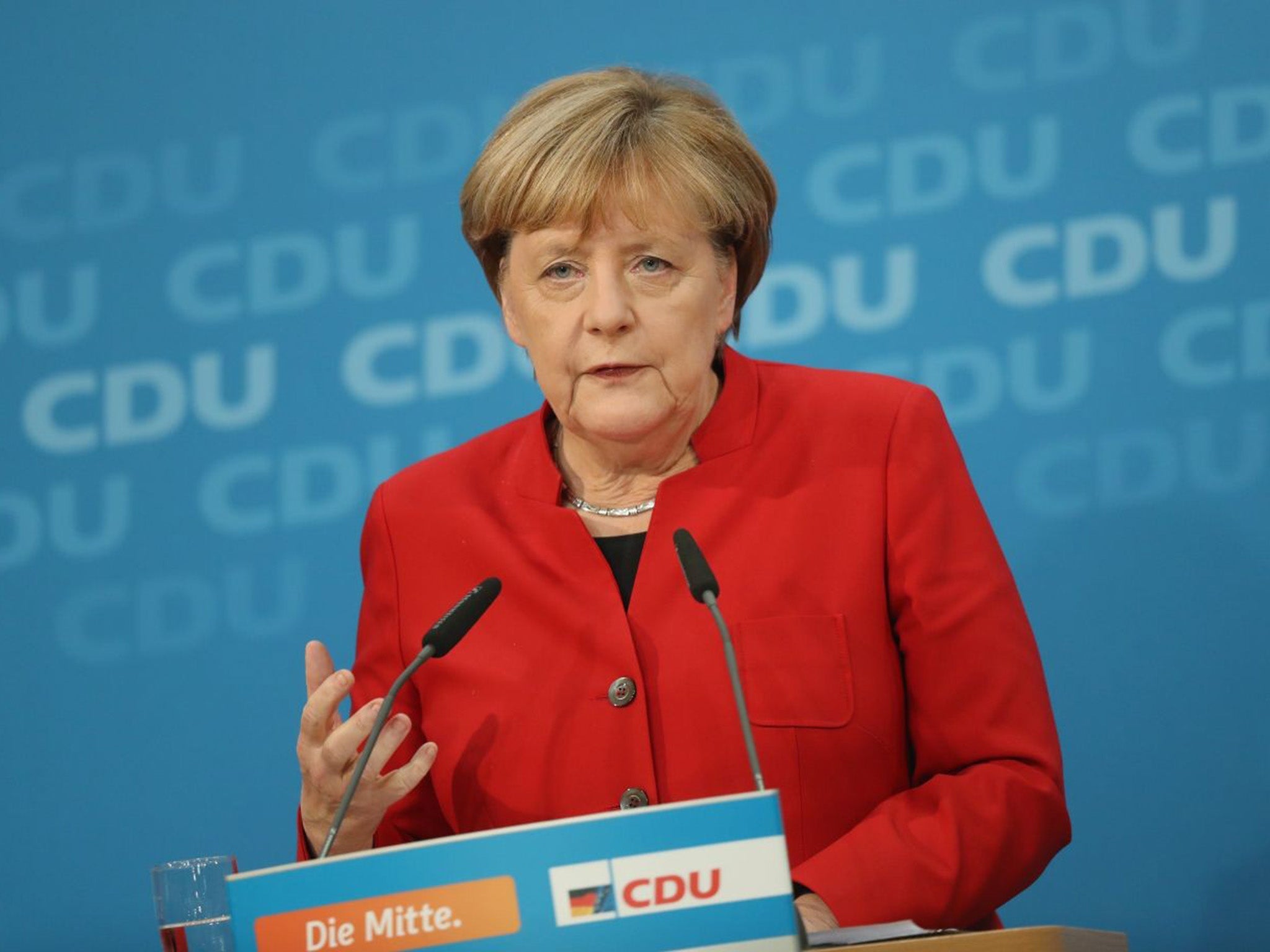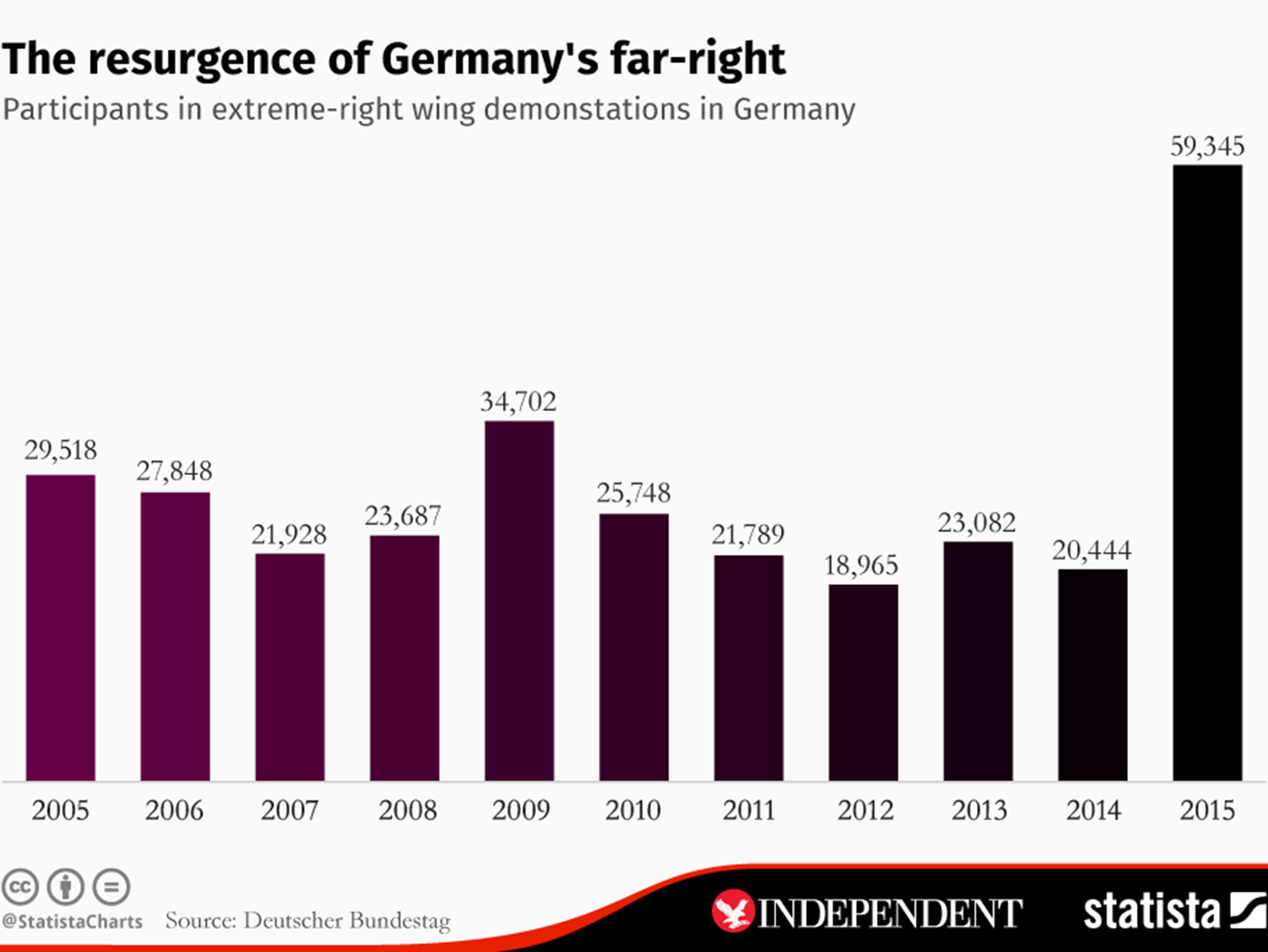Angela Merkel announces she will run for fourth term as German Chancellor
Politican remains popular but her party has suffered from the rise of the far-right

Your support helps us to tell the story
From reproductive rights to climate change to Big Tech, The Independent is on the ground when the story is developing. Whether it's investigating the financials of Elon Musk's pro-Trump PAC or producing our latest documentary, 'The A Word', which shines a light on the American women fighting for reproductive rights, we know how important it is to parse out the facts from the messaging.
At such a critical moment in US history, we need reporters on the ground. Your donation allows us to keep sending journalists to speak to both sides of the story.
The Independent is trusted by Americans across the entire political spectrum. And unlike many other quality news outlets, we choose not to lock Americans out of our reporting and analysis with paywalls. We believe quality journalism should be available to everyone, paid for by those who can afford it.
Your support makes all the difference.German Chancellor Angela Merkel has announced she will stand for a fourth term in next year's general election.
Speaking to reporters after meeting with members of her Christian Democrat party (CDU), Ms Merkel said: "I literally thought about this decision endlessly ... but I am ready to run for office again."
The 62-year-old has been the head of the German government since 2005. If her party win next year's federal election and she serves the entirety of her four-year term she will match her former mentor Helmut Kohl's post-war record of 16 years in office.
Ms Merkel had previously declined to say whether she was running again during a joint press conference with Barack Obama on his last international trip at president last week.
The politician has seen high popularity during her premiership, with many Germans affectionately referring to her as "Mutti" or mother, but she has struggled to fight the rising tide of anti-immigration feeling since she allowed over a million refugees fleeing conflict in the Middle East to settle in the country.
A poll for German newspaper Bild am Sonntag found 55 per cent of Germans supported Ms Merkel running for a fourth term but her party faces a threat from the rising appeal of the anti-immigration party Alternative for Germany (AfD).

During regional elections in the northern state of Mecklenburg-West Pomerania in September, the CDU were pushed into an embarrassing third place when the AfD surged ahead of them.
The region is one of Germany's poorest and was once part of the former communist east which has struggled to keep economically with the more prosperous west.
The anti-immigration party, along with the far-right protest group Pegida, have put pressure on Ms Merkel to follow a tougher line on immigration and the acceptance of refugees.
Playing on fears stoked by the mass sex attacks on around 1,000 women in Cologne on New Year's Eve by men who were predominantly from ethnic minority backgrounds and a spate of lone wolf terror incidents over the summer, the AfD has ramped up its anti-immigration and anti-Islam rhetoric.
This has lead to a rise in hate attacks against refugees and those who support them such as Joachim Kebschull, the mayor of Oersdorf, who was beaten on the way to a town hall meeting in September for calling on the town to welcome Syrians.
In February, crowds reportedly "cheered" as a planned home for asylum seekers was burned down in Saxony.
Join our commenting forum
Join thought-provoking conversations, follow other Independent readers and see their replies
Comments